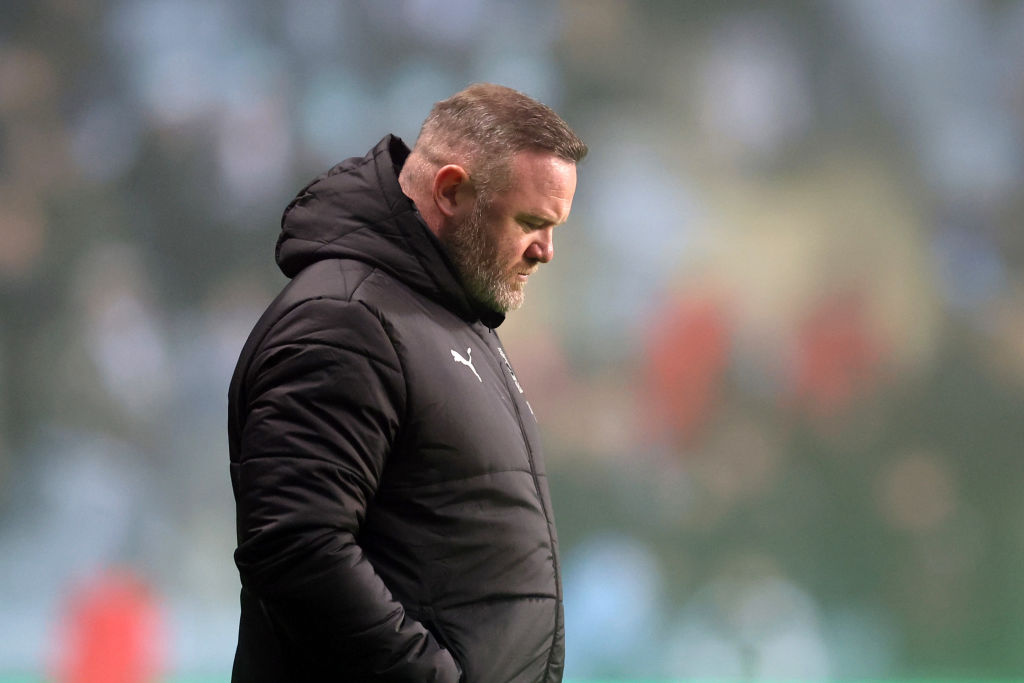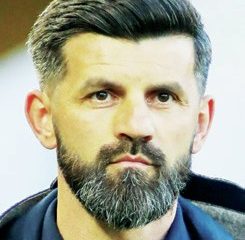The League Managers’ Association hosted their fifth annual conference in London last week. The BBC’s Manish Bhasin and former England cricketer Jeremy Snape presented and quizzed a fine array of speakers whose focus was on driving performance and, particularly, on delivering innovation and change. I thought it would be good to use this column this week to summarise some of the main messages I took away from the men and women who shared their expertise with the audience.
The chairman of the LMA, Howard Wilkinson, and the chief executive, Richard Bevan, have catapulted the managers’ union to a position of high regard and repute. Their work in creating an exceptional organisation, staffed by excellent professionals deserves commendation.
The conference produced a remarkable bank of insights and learning for the members and business leaders
present because of the calibre of person that the strength of the LMA brand attracted. That is testament to the association’s growing strength.
APPLE BOSS GIVES SECRET OF SUCCESS
Richard Gerver won the prestigious head teacher of the year award in 2005. He is now an inspirational business speaker. Gerver’s philosophy is that communication, empowerment and impact are the three core principles that comprise great leadership.
His most memorable conference message surrounded a chance meeting he shared on a plane with Apple co-founder Steve Wozniak. Wozniak told him that Apple seek never to employ anyone who needs managing.
At first it seems paradoxical for managers to be taught to employ people who don’t need managing. But I guess that we all aspire to employ self motivated, clever people with a high capacity and desire to learn.
Certainly, Apple haven’t done badly thinking as they do.
ALWAYS TRY TO SEE THE BIG PICTURE
Manish Bhasin interviewed Richard Scudamore (CEO Barclays Premier League), Kate Hoey MP (former Minister for Sport) and Hugh Morris (MD of England cricket).
All three shared insights into the factors that have created successes in different spheres of sport. Scudamore was highly complimentary about the evolution of technology in the world of broadcasting that has seen the Premier League become a global phenomenon at a hand held and big screen level. The message was to be brave and not be scared of finding complimentary partners.
Trust your partners to make the most of you. He also highlighted the stunning changes in the professionalism of clubs in England. Incredibly, he was able to point to Premier League revenues of £124m on his arrival, while last year the Premier League ‘gave away’ £290m. Some growth.
Kate Hoey outlined the scheme that she has pioneered involving mobile swimming pools being taken around and erected for three-month periods as a means of encouraging people to become more active by making sport more accessible. Health, education and sport are inextricably linked.
The need for sport to support the health and education agenda is one that football clubs have undoubtedly taken on but it is inevitable that the agenda is only going to get stronger. Football already goes into the community via schools.
How long before clubs take an even stronger lead role in the local matters of health and education?
Hugh Morris made it clear that investment was behind England’s improved cricketing performances. Central contracts and the development centre at Loughborough are the reasons for the sea change. Some £4m of lottery money went into the project. Big changes do need complimentary funding.
So the messages were: investment is needed, partners can be trusted and there is a big picture out there that you need to see if you are to lead.
RIVALS’ WEAKNESS IS YOUR STRENGTH
Dr Phil Hopley is a resilience expert, a consultant psychiatrist by medical training. He has a sporting background having played rugby for London Wasps for a decade. Phil’s expertise includes building strength into character to avoid anxiety, burnout and depression caused by stress.
His business, LPP Consulting, advises a range of blue chip organisations on leadership, stress and resilience management. Phil was excellent in highlighting the ways in which stress hits him personally in his job, but how, through careful control and understanding of the subject, he can create a clear sense of perspective and control the pressures that he faces.
Not everybody is so lucky. That is for sure. It is great to see that people are being encouraged to admit their frailties and to seek professional guidance so as to strengthen their mental capacities.
Phil argued that stress is significantly diminished if you study your opposition closely and play to your strengths. When you focus on your assets and the gaps in others’ capabilities, your sense of control is greater. Simple thinking. Unremarkable you might say. But there is no doubt that simplicity is often genius.
WORKPLACE FUN BRINGS RESULTS
The deputy director of performance solutions at the English Insitute of Sport is Dr Scott Drawer. He is a brilliant guy. Scott quoted Henry Ford when he said ‘if I asked my customers what they wanted they would have said faster horses’.
His role is to use technology, medicine and science to enhance sporting performance. Recent successes include contributions to supporting British Olympians. I learned so much from Scott’s presentation.
His starter for 10 involved failure; he actively embraced trial and failure. Without error, he rightly argues, no progress gets made. If you had seen the toboganist’s pants rip at the beginning of a run while using his new skin tight design, that error philosophy would be evident!
He emphasised prioritising. Ideas with a greater magnitude of success and greater probability of success get the vote. Obvious. But not always how it goes.
He talked of the benefits of expert novices, people who do not know your subject matter often ask the very best questions and challenge established thinking. Yet we don’t often embrace these ‘novices’.
But my one outstanding image of Scott’s talk was a video he showed. It was of a set of stairs and an escalator side by side in a shopping centre. At first, nearly everybody was using the escalator.
Then, one night, the stairs were transformed into a set of piano keys so that as you trod on a black or white part of a step, music was played electronically aloud.
Scarcely a person used the escalator. The moral of the story is that people love doing things that are fun. Fun environments create the best performance. Perhaps many people can think about and learn from that.
UK PLAYERS CAN IMPROVE MENTALLY
The Conference closed with Roberto Martinez, Glen Hoddle and Phil Brown (as a replacement for Sam Allardyce – the two worked together at Bolton) being interviewed by Jeremy Snape.
Roberto was very clear about the emphasis that the Spanish place on the development of winning professional standards in the 18-22 age group.
A willingness to integrate cultures and respect strengths in each other is vital to continuing progression.
The existence of competitive C team football for players at that age was cited as a critical success factor for the Spanish. Phil highlighted the one-on-one coaching philosophy brought to Bolton by Big Sam from the USA.
And Glen brought out the importance of imagination in the development of a player’s ability.
All believed that there was a huge opportunity to develop mental skills in the UK player. All highlighted the importance of the leader’s vocabulary.
GADGET TELLS IF COACH IS GOOD
Did you know? The number one technical intervention for an athlete is his or her coach. So…a gadget has now been designed to measure the state of well being of a coach in terms of the effect that coach is likely to have on his/her athletes.
By measuring the predicted effect, based on scientific measures, of the coach, action can be taken to mitigate any potential negatives and enhance any potential positives. Incredible huh!
















